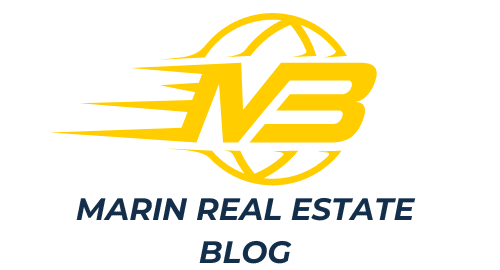How to Develop an Effective Local SEO Strategy for Small Brick-and-Mortar Businesses?

Introduction:
In today’s cut-throat digital marketplace, it’s crucial to be noticeable online. Particularly for brick-and-mortar businesses that operate within a specific locality, a solid local SEO (Search Engine Optimization) strategy is a must. This article will guide you on how to develop an effective Local SEO strategy that boosts your online visibility, drives more traffic to your website, and, ultimately, converts more customers.
Understanding the importance of Local SEO
Before delving into the nuts and bolts of developing an effective local SEO strategy, it’s essential to understand why it’s so crucial for small businesses.
Lire également : How Can Small Businesses Leverage Networking for Growth and Opportunities?
At the heart of local SEO is the goal to make your business more visible on Google and other search engines when people in your location search for products or services that you offer. The increased visibility drives more traffic to your website and physical location, leading to more sales and growth for your business.
Local SEO is particularly important because it targets customers who are ready to buy. According to Google, 50% of consumers who conduct a local search on their smartphone visit a physical store within a day. Moreover, 18% of local mobile searches lead to a sale within one day.
Sujet a lire : What Are the Effective Cost Management Techniques for Small Businesses in a Tight Economy?
Identifying Relevant Keywords
A keyword is a specific word or phrase that people type into a search engine when looking for a service or product. They are highly important in local SEO as they help your site appear in relevant local searches.
To identify relevant keywords, start by brainstorming phrases that customers might use to find your product or service. Tools like Google’s Keyword Planner can help you find more keywords and analyze their popularity and competition level.
As a local business, you should focus on long-tail keywords that indicate local intent. For example, if you run a bakery in Boston, instead of targeting the highly competitive keyword "bakery," you could target "Boston bakery" or "best donuts in Boston."
Optimizing Your Website for Local SEO
Once you have identified your keywords, the next step is to optimize your website. This involves incorporating your keywords into your site’s content, metadata, and alt tags.
When creating content, ensure it is high-quality, original, and relevant to your local audience. Include your keywords in your content strategically and naturally. Overuse of keywords, known as "keyword stuffing," can lead to penalties from Google.
Additionally, your site’s metadata, including title tags, meta descriptions, and headers, should also include your keywords. Alt tags, which describe images on your website, should also be optimized with relevant keywords.
It’s also essential to include your business’s NAP (Name, Address, and Phone number) on all pages of your site. This not only helps customers find you, but it also reinforces your location to search engines.
Managing Online Reviews and Ratings
Customer reviews play a significant role in local SEO. They not only influence your rankings in local search results but also affect consumers’ purchasing decisions.
Encourage your customers to leave reviews on your Google My Business page and other relevant review sites. Respond to reviews, both positive and negative, in a timely and professional manner. This shows potential customers that you value their feedback and are dedicated to improving their experience.
Leveraging Local Business Directories
Another essential aspect of local SEO is listing your business in online directories, such as Google My Business, Yelp, and Bing Places for Business. These listings help increase your online visibility and improve your local SEO.
Ensure that your business information is accurate and consistent across all directories. This includes your business name, address, phone number, business hours, and description. Having consistent and accurate information provides a positive user experience and boosts your credibility in the eyes of search engines.
To sum it up, developing an effective local SEO strategy requires a comprehensive approach that encompasses keyword research, website optimization, review management, and local directory listings. By following these steps, you can improve your online visibility, attract more customers, and grow your business.
Harnessing the Power of Social Media
Social media platforms like Facebook, Instagram, and Twitter have become significant players in the world of local SEO. They offer an excellent way for businesses to engage with their local community and increase their online visibility.
Start by creating a business profile on each of the major social media platforms. Ensure that your profile contains your business’s NAP (Name, Address, and Phone number), as well as a link to your website. This not only makes it easier for potential customers to find you but also strengthens your local SEO by creating consistent NAP information across the web.
Next, develop a consistent posting schedule. Regularly sharing content such as news, updates, and promotions can attract and retain followers, leading to increased engagement and more visibility in local searches. Remember to use your keywords naturally in your posts to increase their relevance to local search queries.
You can also leverage features specific to each platform. For example, Facebook allows businesses to gather reviews and ratings, while Instagram offers geotagging, which can boost local visibility.
Furthermore, interacting with your followers can enhance your online reputation and show search engines that you’re an active, reliable business. Respond to comments and messages, thank customers for their support, and take time to address any concerns or complaints.
Finally, encourage your followers to share your content. This not only broadens your reach but also creates backlinks to your site, which can boost your rankings in search engine results.
Building Local Backlinks
Backlinks, or links from other websites to your own, are a crucial component of SEO. They are a vote of confidence from one site to another and can significantly impact your search engine rankings.
In the context of local SEO, the focus should be on building local backlinks. These are links from websites that are relevant to your local area or industry. They not only help improve your rankings in local search results, but can also drive targeted, high-quality traffic to your site.
To acquire local backlinks, consider the following strategies:
- Collaborate with other local businesses or organizations. This could involve sponsoring local events, partnering for a joint promotion, or offering to write guest posts for their blogs.
- Get involved in your local community. Participate in community events, join local business groups, or volunteer for local charities. These activities can provide opportunities for your business to be featured on their websites or social media platforms.
- Submit press releases to local news outlets. If you have a newsworthy event or story, local newspapers, TV stations, or radio stations may be willing to cover it and link back to your website.
Conclusion
Creating and implementing an effective Local SEO strategy is no small feat. It requires a thorough understanding of how search engines operate, a clear view of your local market, and a consistent effort to optimize your online presence. By understanding the importance of local SEO, identifying relevant keywords, optimizing your website, managing online reviews, harnessing the power of social media, and building local backlinks, you are setting your small brick-and-mortar business up for success.
Remember, Local SEO isn’t a one-and-done deal. It requires continuous monitoring and refining to stay ahead of your competition. However, the benefits are well worth the effort, from increased foot traffic to your physical location to a more robust online presence and ultimately, a healthier bottom line. So, start today, and watch your small business grow.
